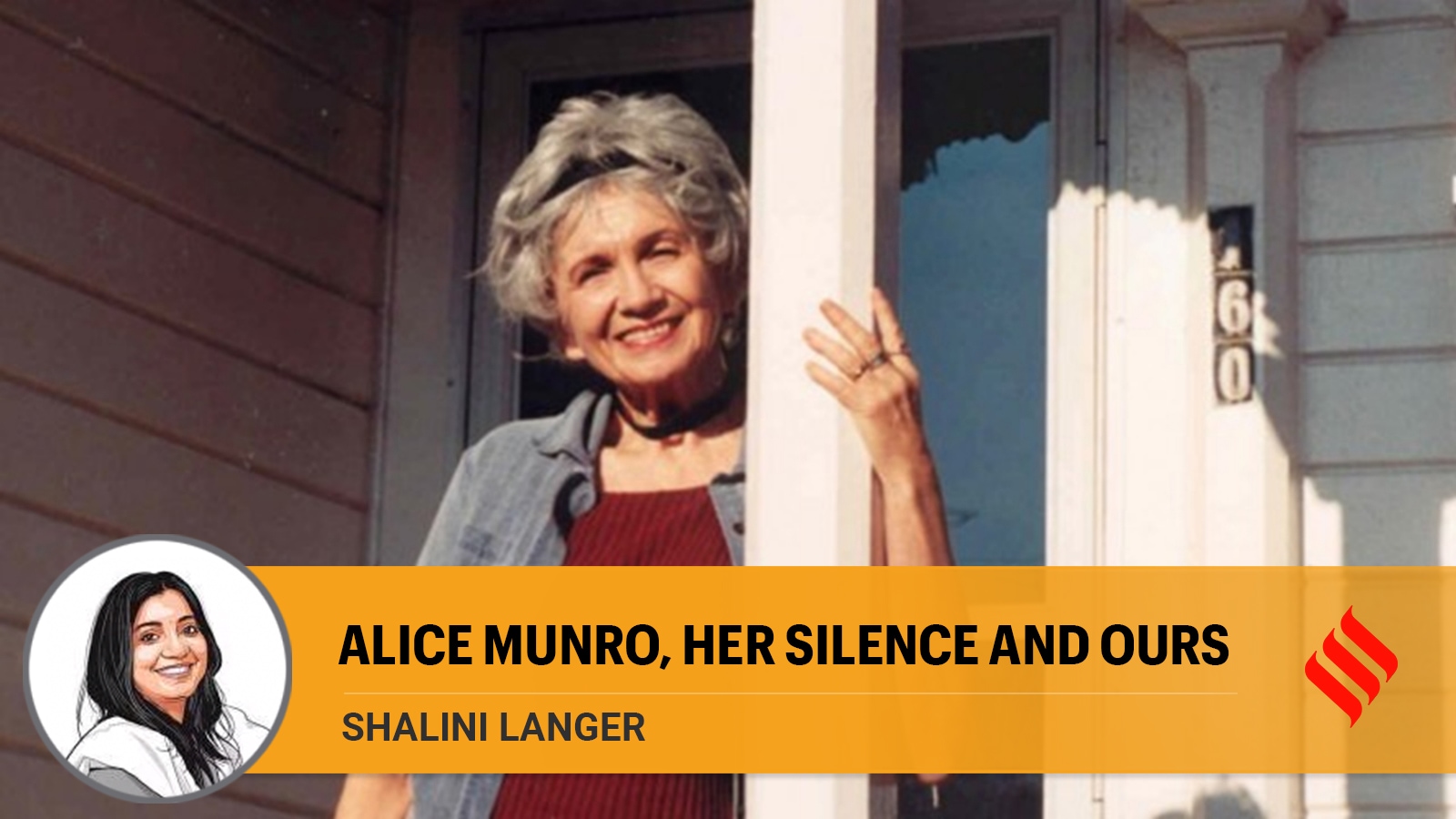How does one reconcile she, the chronicler of women’s invisible everyday lives, with she, the enabler of her daughter’s sexual assaulter? But, really, can we not? Munro’s biggest crime for the world will always be that she remained silent. However, how many of us are not guilty of that very same failing, in one way or another, and live daily with this knowledge?
Like the memory seared in me of the oily ponytail of the Sanskrit teacher at my school, proudly wearing his Brahmin holiness on that little tuft of hair, as he stood in front of me and made loaded innuendos, while I shrank further and further into my chair. No, I did not speak; and neither did anyone else in that classroom.
Like the recollection of every detail of being grabbed out of the blue while walking down the street by a young man, part of a laughing group, or in a crowded public bus by a leery co-passenger. The public assault left me stunned, and feeling all alone, though also teaching me a lesson to instinctively lean back on, on how to “safely” navigate such spaces.
Like the betrayal of being groped by an uncle in my own home, trying to raise the issue and being told to forgive this “momentary lapse”. Years have passed, but I live it every time he genially joins us for family events. Does he remember, as I do? And how can I see him in ever kinder light, like I do now? What does it make me?
My silence, or ours, doesn’t in even a tiny little way absolve Munro’s abandonment of her daughter Andrea Skinner, in her own words, at every stage of her life — from when she was nine to when she became a mother with young children of her own. Neither does it hide the shock one feels, particularly as a mother, that Munro could choose to love and live with a man who had harmed a child so utterly defenceless.
No, this is only an effort to understand the author who understands us so acutely, and an admission that — like her — very few among us are not complicit in silences. And were Munro’s women not all about that? Bound by silences that allowed some to do what they wanted, and others to not do anything at all?
Yes, the world has moved on. Only a couple of days ago, all it took was a thread of social media posts to bring down a corporate honcho accused of molestation. However, not all of us have it in us to be avenging heroes. The omertà we choose after all is part of our lifelong endeavour for “normalcy”, to push our boundaries and still have our feet on solid, unshakeable grounds.
I even find myself questioning if this social media trial is not mob justice in another form, playing judge, jury and executioner. And then wondering if all this has to do with my guilt regarding my own silence, and the failure to do anything about it.
I want to believe — and I do — that Munro carried that weight too, and particularly the weight of the fact that she couldn’t deny her love for the man who had assaulted her daughter.
Women aren’t supposed to make that choice, especially mothers. But Munro’s women have told us all along to look, look beyond. Her women were never perfect moms, wives, daughters, or girlfriends, just people carrying on the best they knew how, with what little they had.
So we judge her the harshest, and not other adults around Andrea who also chose to carry on with their lives, brushing past an abused nine-year-old.
And that there is another silence.



